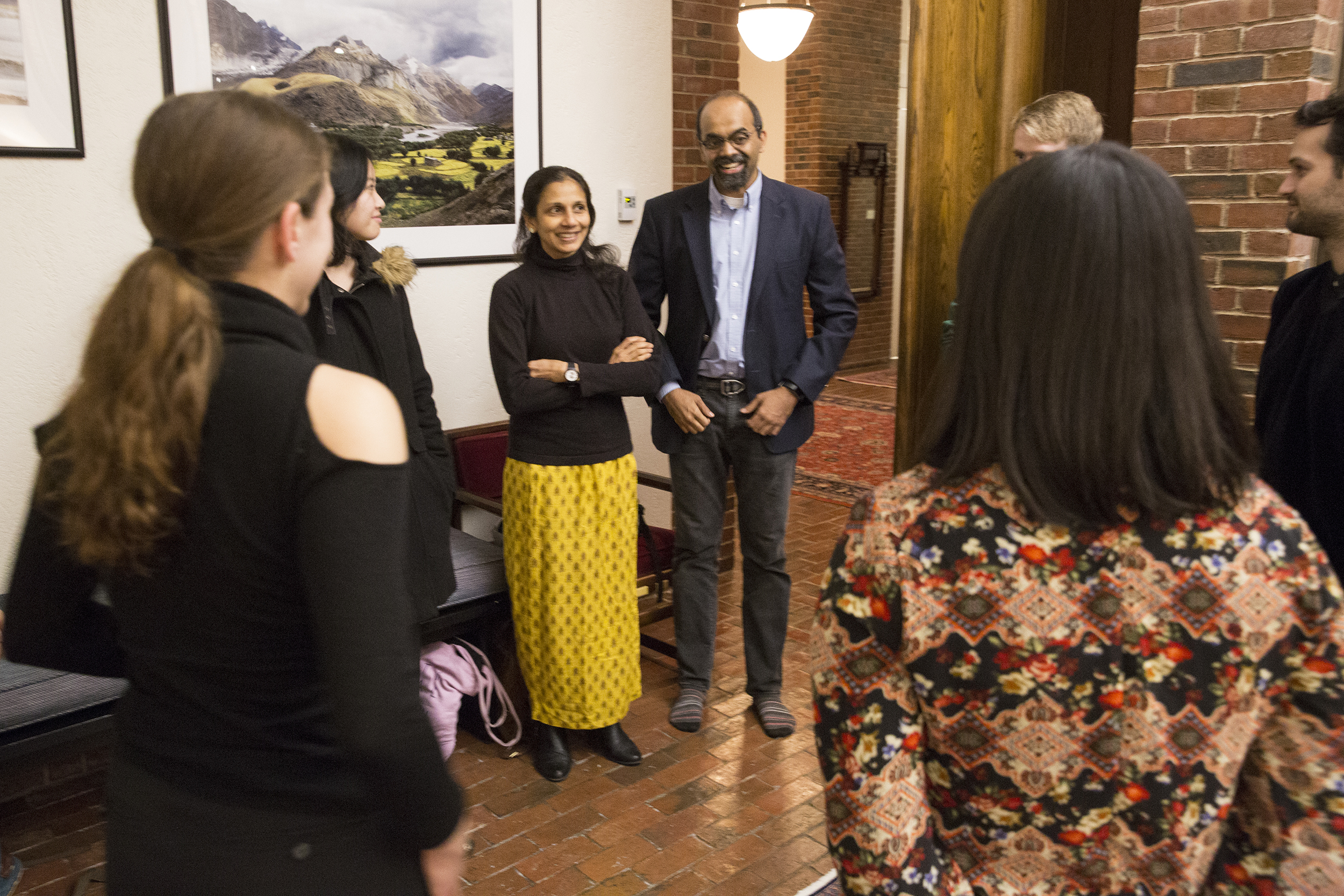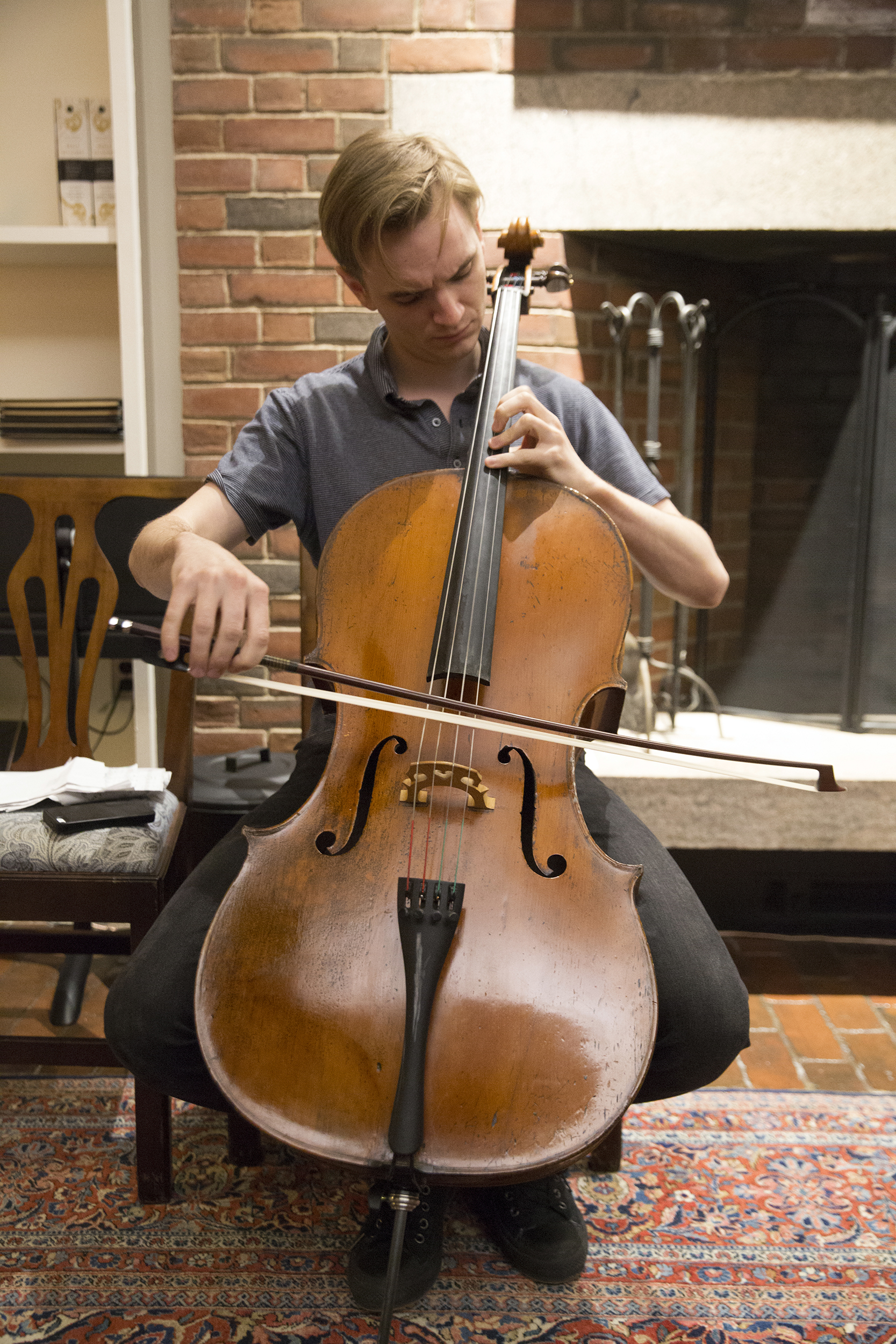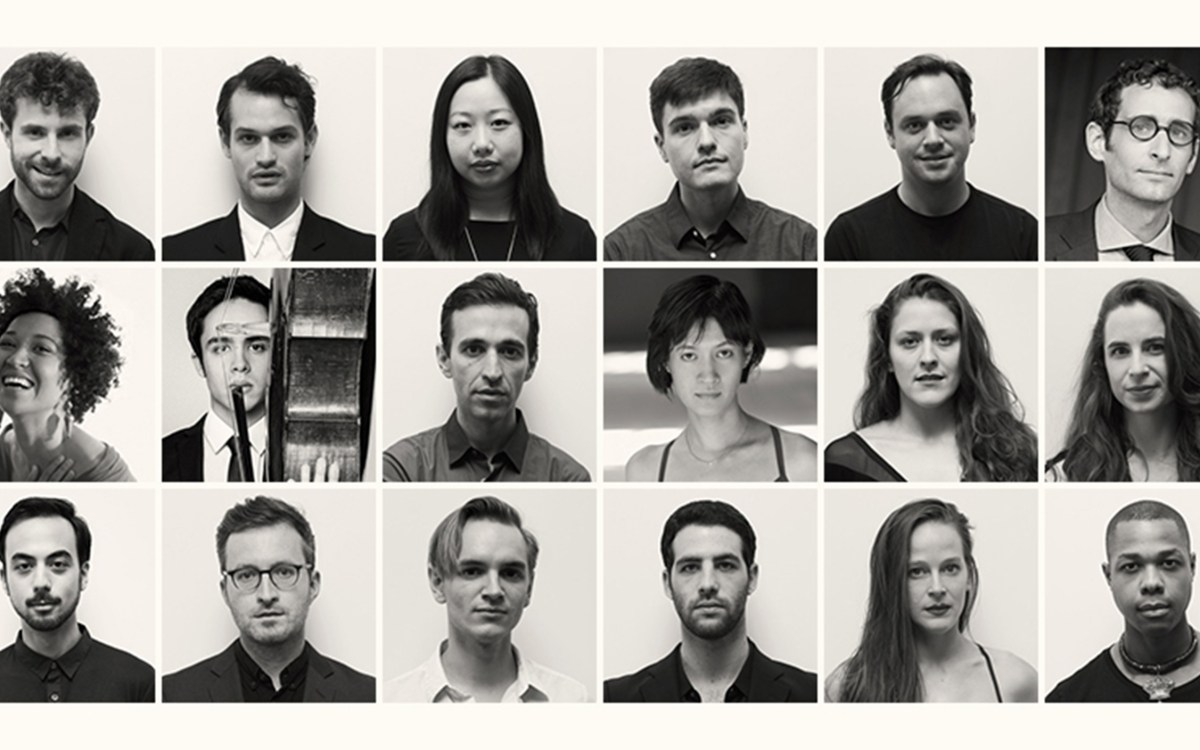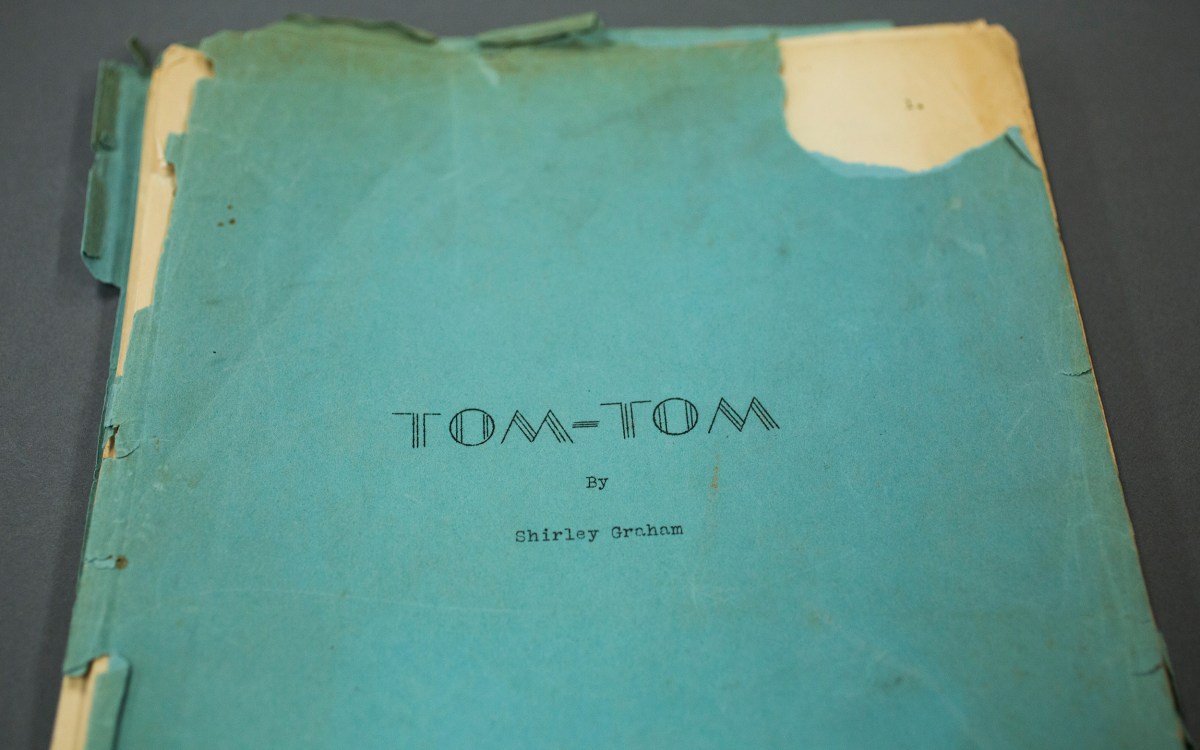A whirlwind of opera
Cinematographer: Kai-Jae Wang/Harvard Staff; Editor: Ned Brown/Harvard Staff
AMOC’s open-endedness makes for an audacious, engaging residency
As arts residencies go, American Modern Opera Company’s visit to Harvard was determinedly interactive — not to mention just plain active.
A dozen members of the company spent nine days on campus during “Run AMOC!,” participating in more than a dozen events with more than 20 organizations. There were open rehearsals and workshops, public performances, a showcase for a recently discovered opera, and jam sessions with students from almost all of the Houses.
“We especially wanted the time in the Houses to be creative working moments that were truly two-way dialogues. We wanted people to actively engage,” said AMOC managing director Jennifer Chen ’11, who started the company last year with Matthew Aucoin ’12 and Zack Winokur.
Three days into the late-winter residency, the co-founders joined six other members of the troupe for an impromptu show at Pforzheimer House. Held in the Holmes Room with lights dimmed, the session began with duets from Claude Debussy and Anton Webern performed by Coleman Itzkoff and Conor Hanick (“Sonata for Cello and Piano in D minor,” “Three Little Pieces, Opus 11”), followed by violinist Keir GoGwilt ’13 and violist Miranda Cuckson pairing up to perform Georg Philipp Telemann’s “Intrada Suite,” based on “Gulliver’s Travels.” Itzkoff returned for a cello solo from Pēteris Vasks’ “Das Buch.”
Aucoin then invited students to participate in creating “a sonic atmosphere” around contemporary composer Pauline Oliveros’ “The Witness,” a piece marked by a set of parameters for improvisation. Some used traditional instruments while others tapped a music stand or made thwacking sounds with a belt.
These are 360° videos. If viewing on an iOS device, open the video on the YouTube app. Otherwise, click and drag your mouse, or move your mobile device around, to explore the 360° environment. For the most immersive experience, try using a headset, such as Google Cardboard.
Afterward, Mateo Lincoln, a Currier House junior concentrating in music and in comparative literature, was in awe of the talent on display.
“It’s such cutting-edge music. AMOC could predict what classical music will look like in five to 10 years,” said Lincoln.
Likewise, Asia Stewart, president of Harvard College Opera, a senior concentrating in government and studies of women, gender, and sexuality, considered the experience a glimpse at the future of American opera.
“Seeing a lot of alums in the company was also really inspiring,” Stewart said. “While they were undergrads, many were not conservatory students, but music has remained integral to their lives. They innovate and keep pushing boundaries, finding ways to craft and explore sound — sounds that are not necessarily pleasant, but that strike you. That’s what I hope to do as a performer.”


Faculty Deans L. and Amala Mahadevan meet members of the troupe before its Mather House performance. Coleman Itzkoff plays the cello.
Photos by Jon Chase/Harvard Staff Photographer
“It’s such cutting-edge music. AMOC could predict what classical music will look like in five to 10 years.”
Mateo Lincoln, a junior concentrating in music and in comparative literature
Jack Megan, director of the Office for the Arts, which co-sponsored the residency with the Office of the Dean of Arts and Humanities, said putting “young artists in the everyday lived experience of our undergraduates” affirms the idea that “creativity is something we all live and breathe.”
AMOC’s 17 artists all have individual careers that include performances, projects, and teaching, but their ensemble work with the company necessitates retreats and residencies that allow significant time for mutual inspiration.
In the Cabot dining hall before the PfoHo session, members ate alongside students, and discussed everything from developing new works to banana chips versus plantain chips. Flutist Emi Ferguson talked with vocalist Davóne Tines ’09 about “El Cimarrón,” a composition German Hans Werner Henze wrote in the late 1960s while living in Cuba.
“It’s amazing, but really challenging,” said Ferguson, who later surprised diners with a short, Pied Piper-style solo to announce the night’s performances.
A day later, AMOC performed at the i-lab in Allston. Aucoin led the audience in a group performance of Cornelius Cardew’s composition “The Great Learning,” based on a Confucius poem. With each change to a new line, each individual changed his or her pitch to a new sound heard from someone else in the room.
Next came GoGwilt’s performance of an excerpt from composer Carolyn Chen’s “Study on Westhoff Suite in D minor.” GoGwilt was accompanied by dancer and choreographer Julia Eichten, who read a poem by GoGwilt that was inspired by fragments from the 17th-century Westhoff piece.
“It’s our nature as well to be audacious, to take on subjects as many and diverse as possible,” said Winokur. “The point is to get as embedded as possible. The more the merrier.”
For GoGwilt, who studied comparative literature as an undergrad and is now a teaching fellow at the University of California at San Diego, the residency felt like “coming a little full circle.”
“I’m a writer and violinist, and in my time here as an undergraduate, I tried to find ways to combine these passions. It was great to be able to share the continuation of the work with current undergraduates.”






